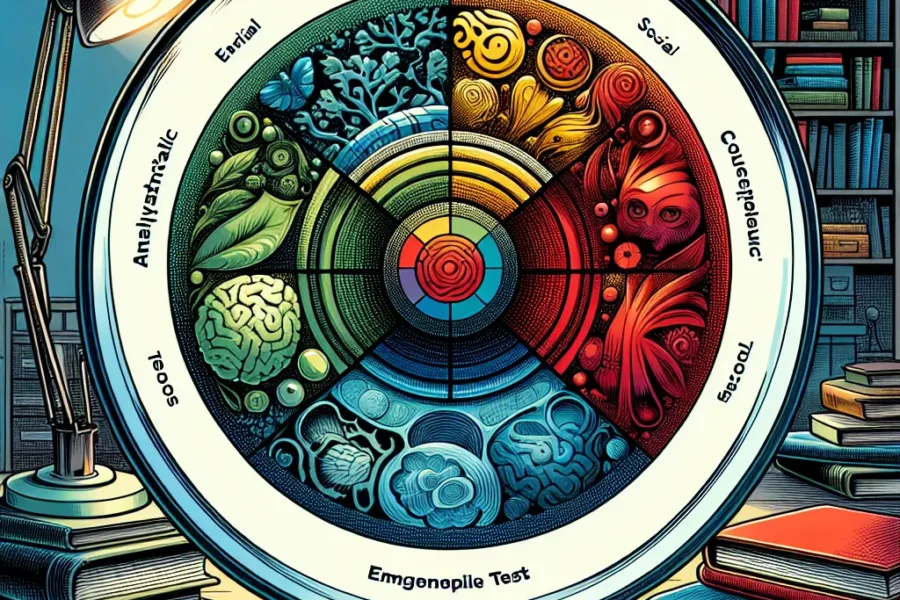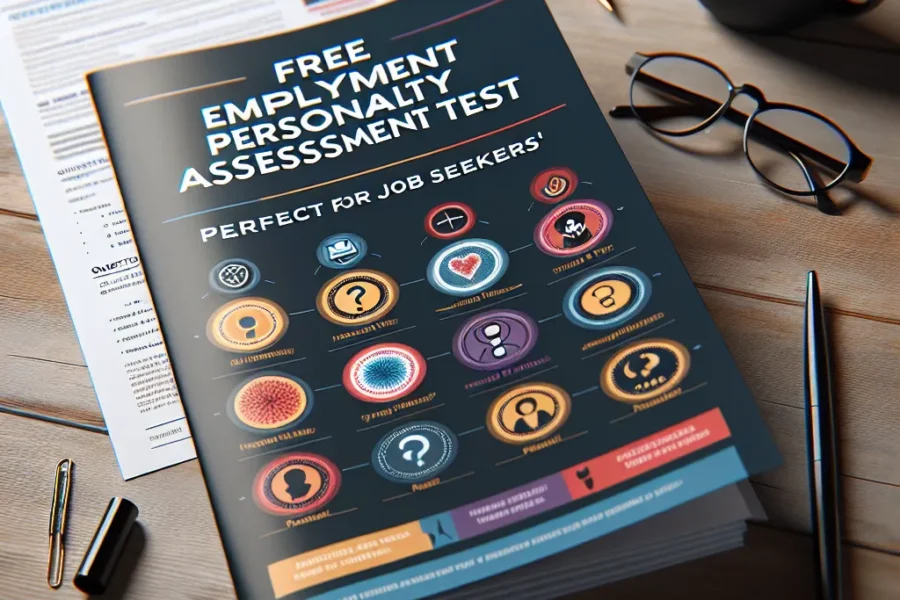Developing emotional intelligence in students is becoming as essential as mastering core academic subjects. Emotional intelligence, or EI, refers to the ability to recognize, understand, and manage one’s own emotions, as well as the emotions of others. It is a critical skill set that aids in effective communication, empathy, self-regulation, and problem-solving. For students, it is increasingly seen as a key factor in both personal and academic success. One increasingly common way to assist students in nurturing their emotional acumen is through emotional intelligence tests. Although there are numerous personality and psychological assessments available online, including precisionpersonality.online, which offers an incredibly accurate and free personality test, identifying dedicated Emotional Intelligence tests designed for students is a critical first step in nurturing their emotional acumen.
The foundational importance of emotional intelligence cannot be overstated. In an educational environment, high EI can lead to better teamwork, improved teacher-student relationships, and a more conducive atmosphere for learning. As such, schools and educators are continually seeking effective strategies to integrate EI development into their curricula. This often includes the use of free Emotional Intelligence tests as diagnostic tools to help students understand their emotion-related strengths and areas for growth.
Free emotional intelligence tests for students typically consist of a series of questions designed to measure various components of EI, such as self-awareness, self-regulation, motivation, social skills, and empathy. By responding to these questions, students gain insights into their emotional functioning. This invaluable feedback can guide educators in creating personalized interventions and support mechanisms to strengthen students’ EI.
Taking a closer look at these components, self-awareness is one of the foundational pieces of emotional intelligence. It is the ability to recognize and understand one’s own emotions and their effects on thoughts and behavior. A free EI test can help students identify their emotional responses to specific situations and learn to observe how these emotions influence their actions.
Self-regulation, another crucial aspect of EI, pertains to managing one’s emotions, particularly in stressful situations. By cultivating this skill, students can learn to think before reacting and make more reasoned decisions. Emotional intelligence tests may pose scenarios and ask how a student might react, which can be an informative exercise in developing healthier emotional management strategies.
Motivation in the context of EI goes beyond sheer determination to achieve goals. It encompasses maintaining a positive attitude, being resilient in the face of setbacks, and pursuing goals with energy and persistence. Emotional intelligence assessments can reveal to students how their emotions affect their motivation levels, enabling them to harness their feelings to fuel their drive toward their objectives.
Social skills are perhaps one of the more observable elements of emotional intelligence, given that they involve how we interact with others. Communication, conflict management, leadership, and the ability to work within a team are all components of social skills. By uncovering any deficiencies in these areas through an EI test, students can take deliberate steps to enhance their interpersonal skills.
Finally, empathy—the ability to understand and share the feelings of another—is a signature attribute of individuals with high EI. Tests can help students recognize their capacity for empathy and provide strategies to improve it, which is invaluable for building strong relationships and fostering a supportive community.
As with any resource that is offered for free, there might be concerns regarding the accuracy and reliability of free emotional intelligence tests for students. It is necessary to choose assessments that have been developed with a solid foundation in psychological research and standardized testing procedures. Reliable EI tests will provide detailed explanations of results and suggest ways students can develop their emotional intelligence. Quality tests often include resources for further learning, such as activities, exercises, or strategies that students can apply in their daily lives.
Moreover, it is crucial for educators to actively engage with the results of EI assessments. After students have completed the tests, discussions can be facilitated to explore the findings and create individualized plans for development. Such post-assessment activities are where the real growth occurs, translating insights into actions that foster the maturation of students’ emotional acumen.
For educators seeking to implement emotional intelligence testing in their classrooms, here are a few considerations to ensure effectiveness and positive outcomes:
1. Choose a Credible Test: Select an emotional intelligence test grounded in reputable psychological theory and research. Look for tests that provide evidence of reliability and validity.
2. Prepare Students: Explain the purpose and benefits of taking an EI test. Ensure that students approach the assessment with an open and reflective mindset, rather than viewing it as just another test to be scored on.
3. Facilitate Reflection: Once the test is completed, allow time for students to reflect on their results. Consider setting up individual meetings or group discussions to help them digest the feedback.
4. Encourage Goal-Setting: Help students set realistic and tangible goals for developing their emotional intelligence. Provide ongoing support as they work toward achieving these goals.
5. Integrate into Curriculum: Where possible, integrate EI development into the existing curriculum. This consistent reinforcement and application of EI concepts can lead to more enduring growth and learning.
6. Combine with Other Resources: Use the EI test as one of several tools in nurturing emotional acumen. Complement it with other resources such as books, workshops, and guest speaker sessions that provide rich, varied insights into emotional intelligence.
In conclusion, free emotional intelligence tests for students represent a significant step toward nurturing a vital skill set in today’s young people. Such assessments pave the way for a deeper understanding of oneself and others, equipping students with the acumen needed for both their academic journey and broader life challenges. With the proper implementation, feedback from these tests can catalyze a lifelong process of emotional growth, ultimately leading to more emotionally intelligent, empathetic, and effective future leaders.



Leave a Comment